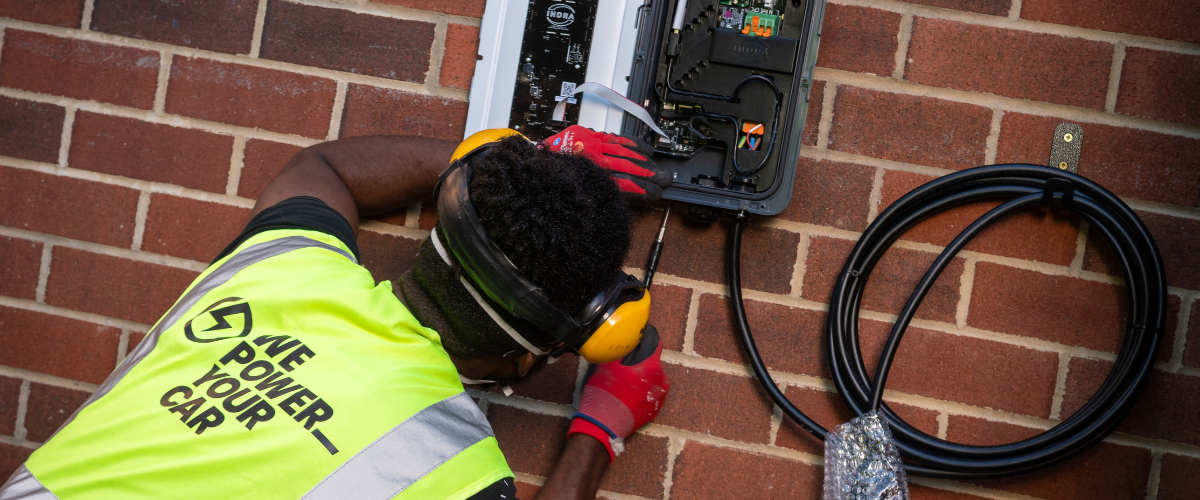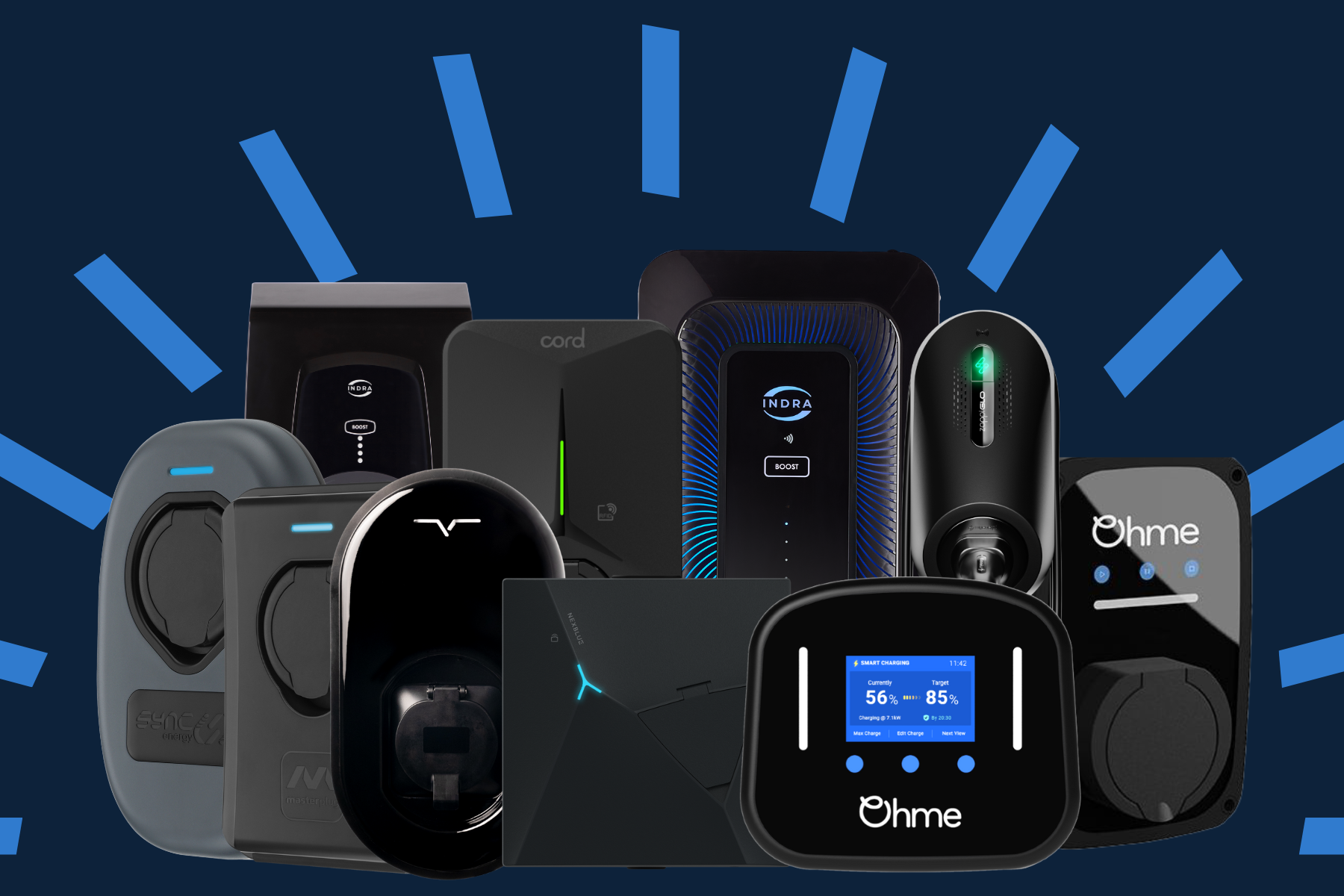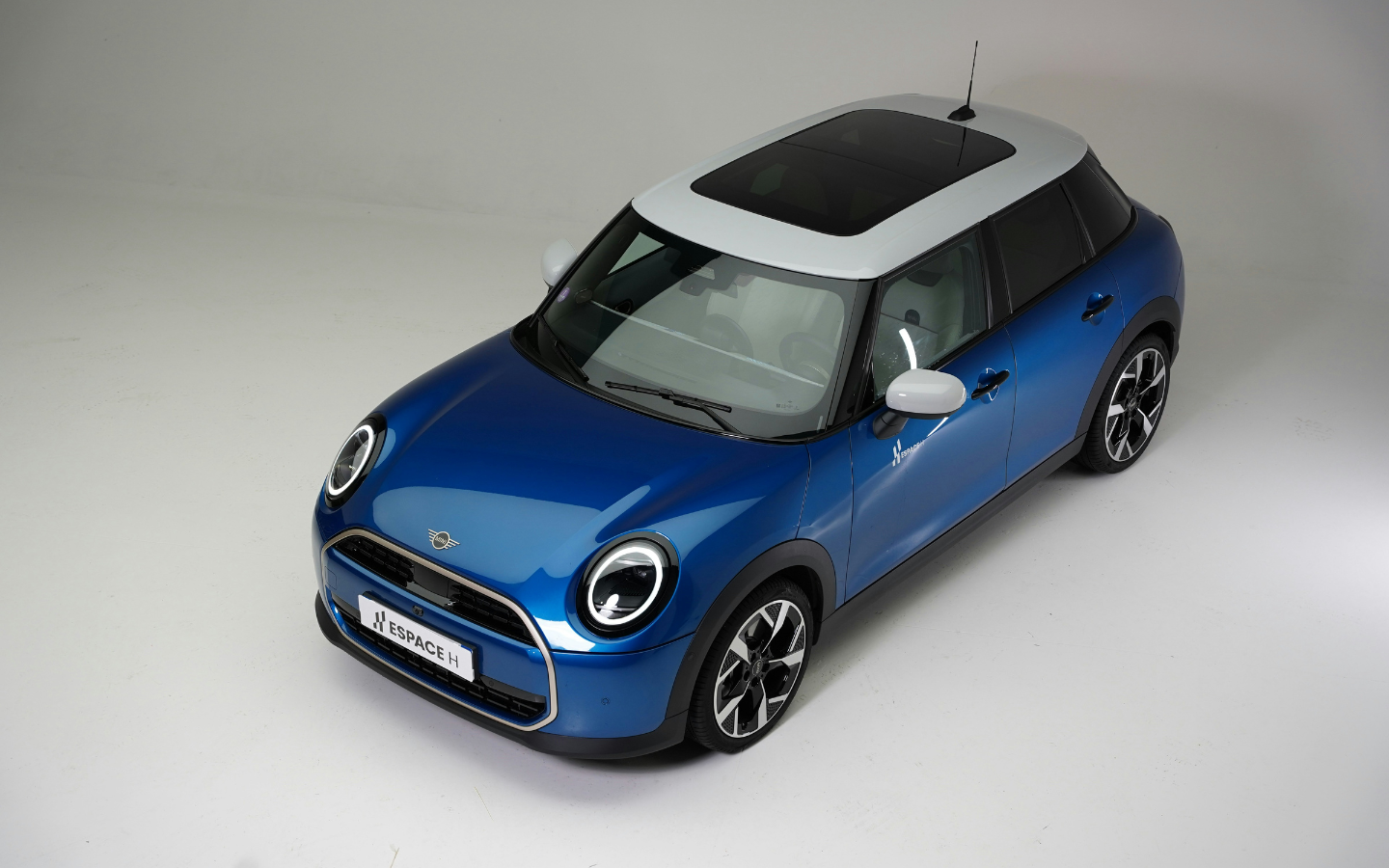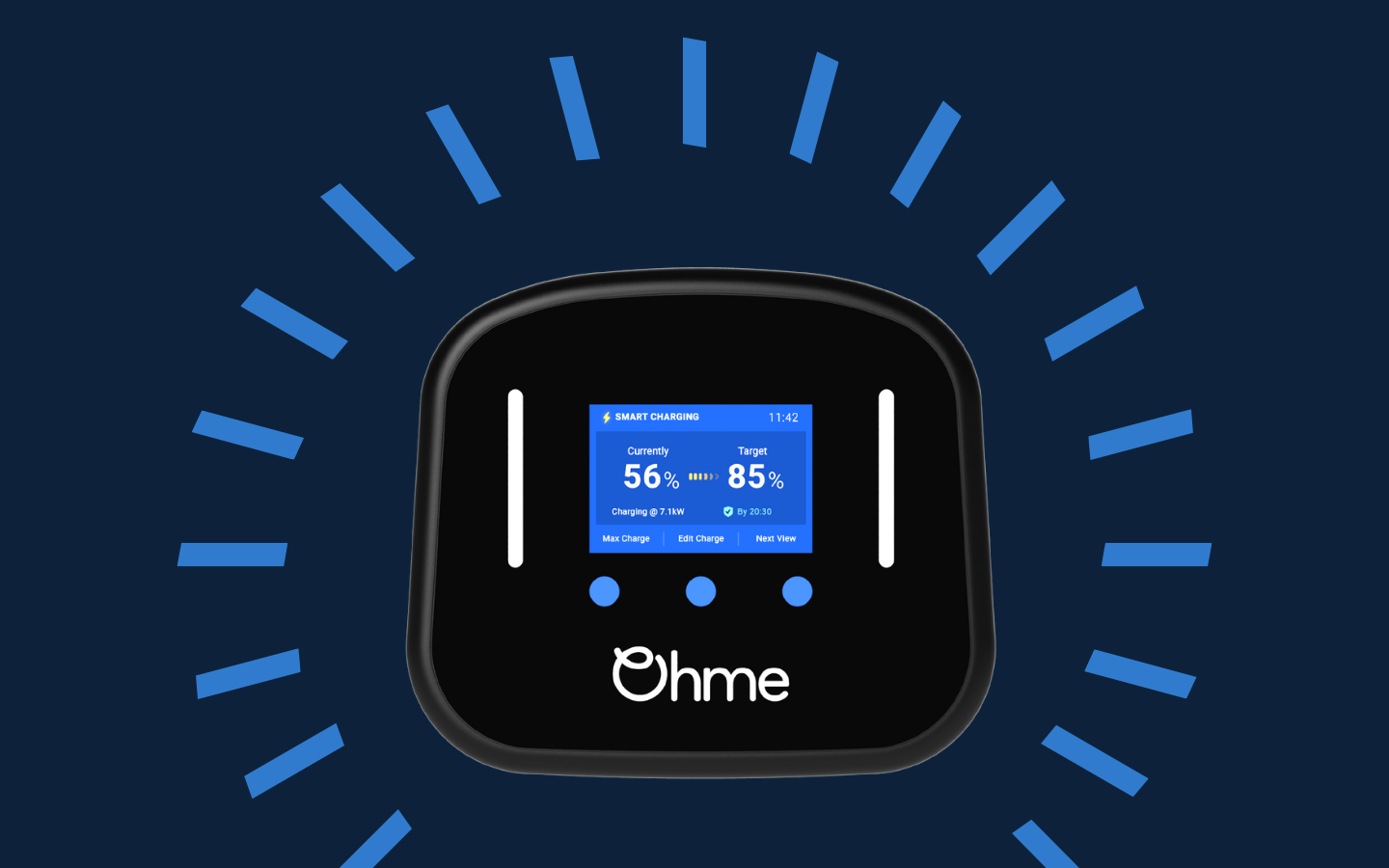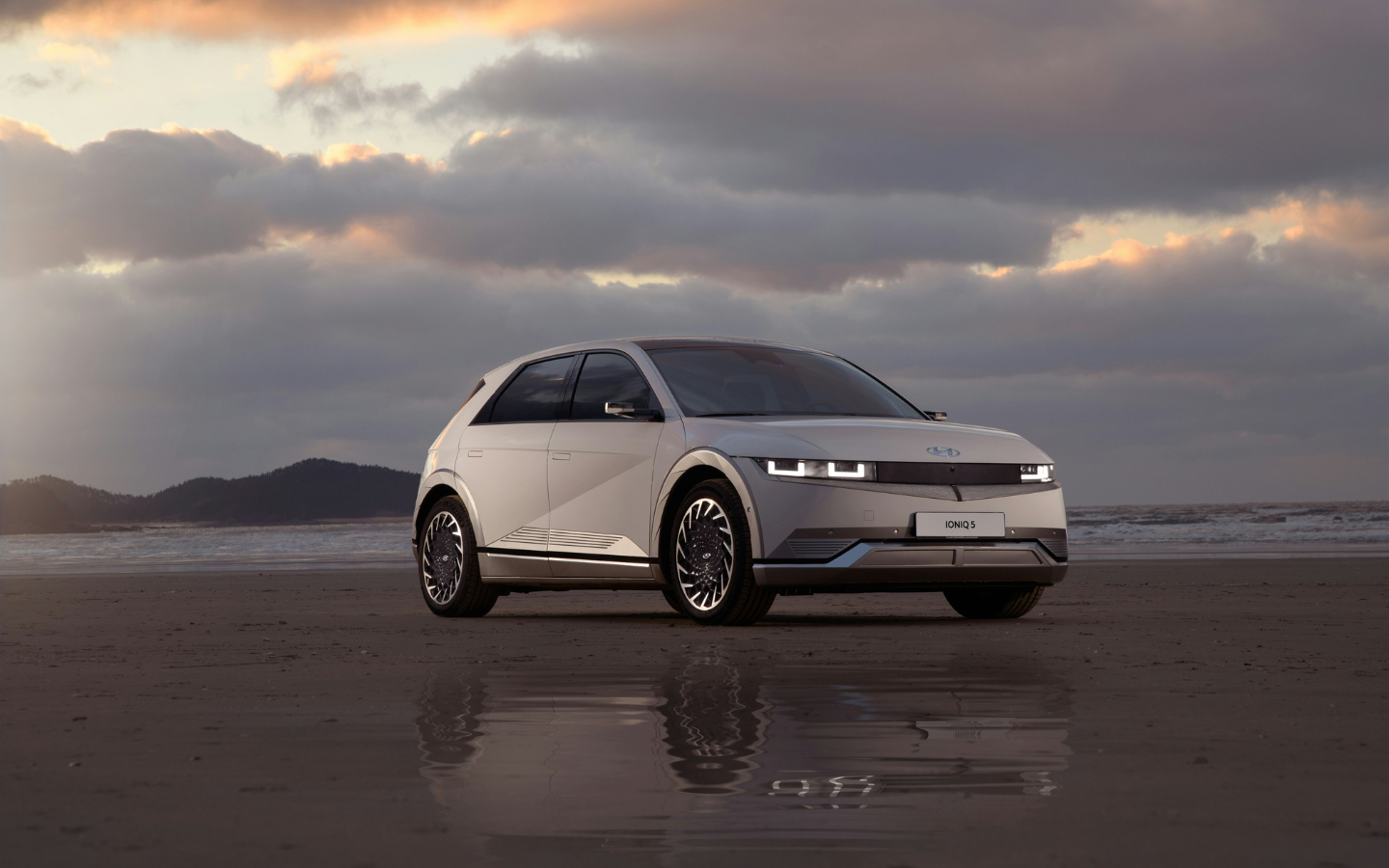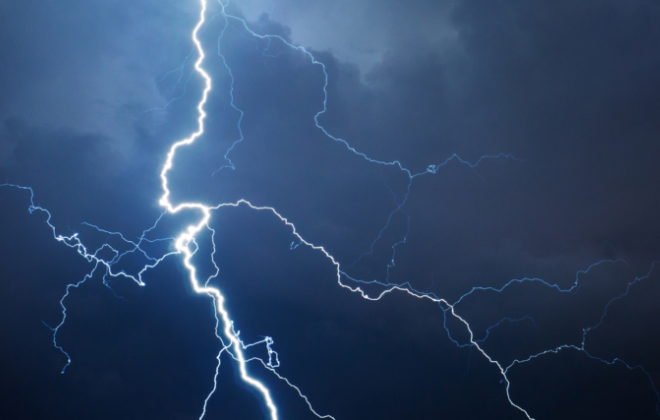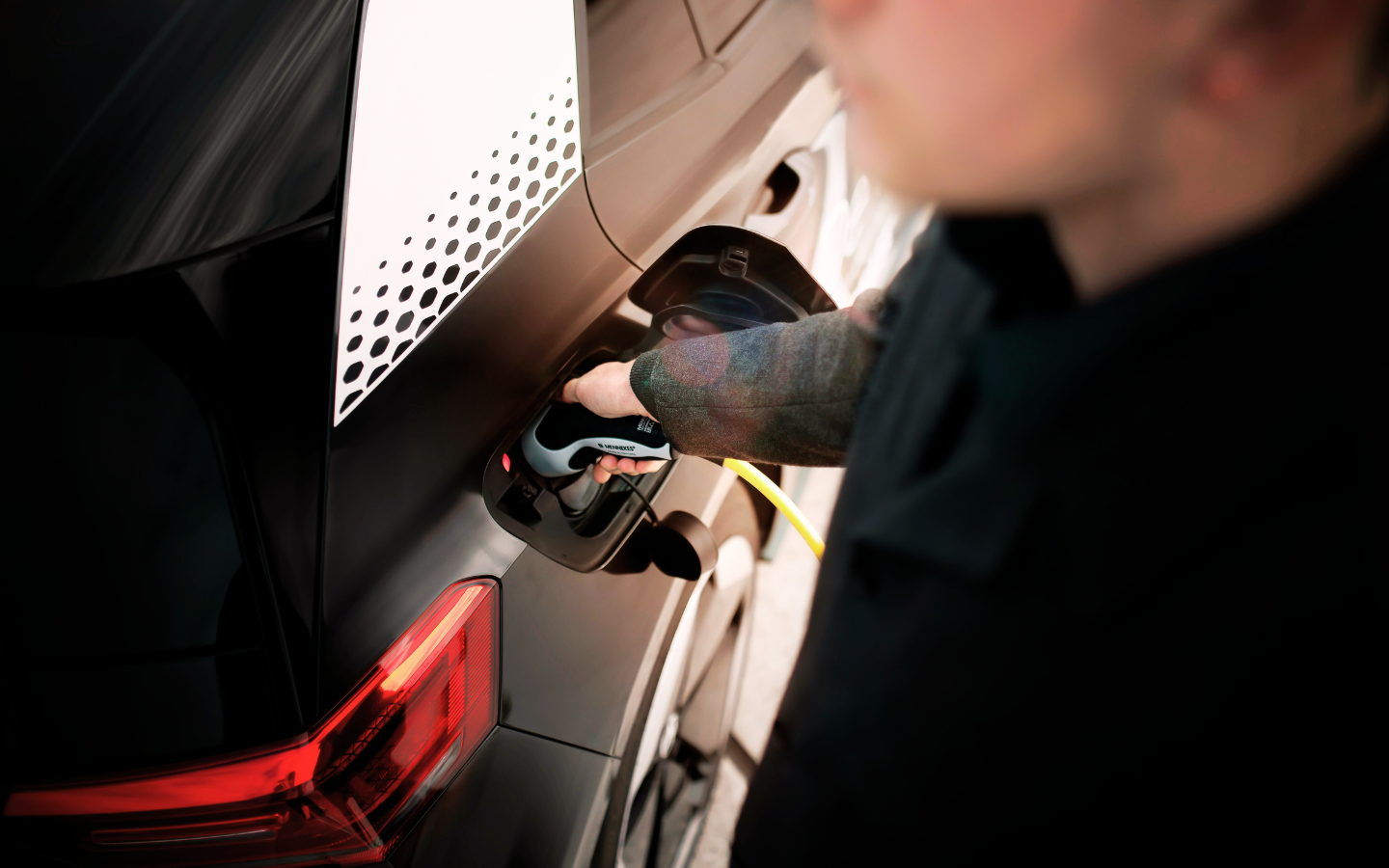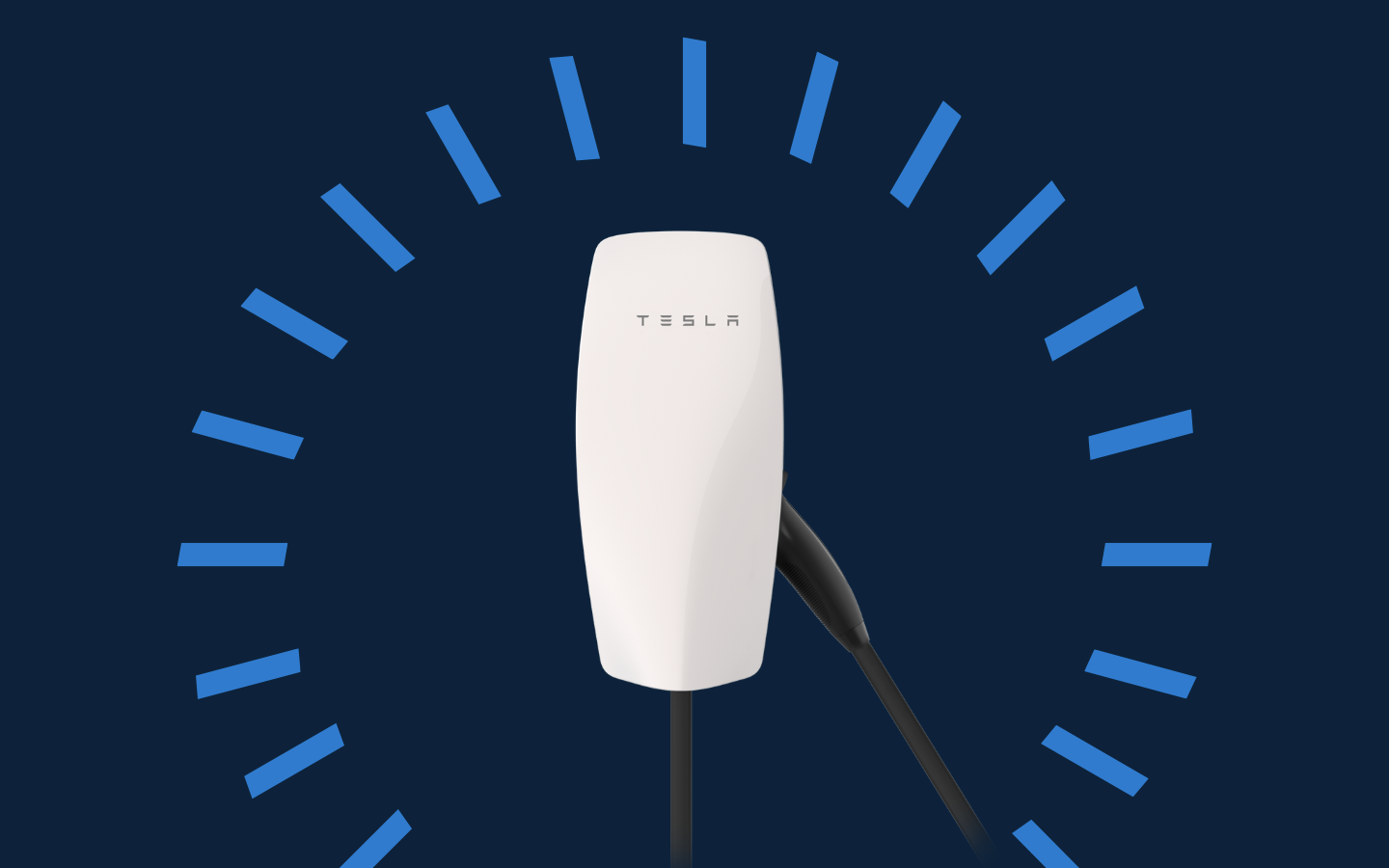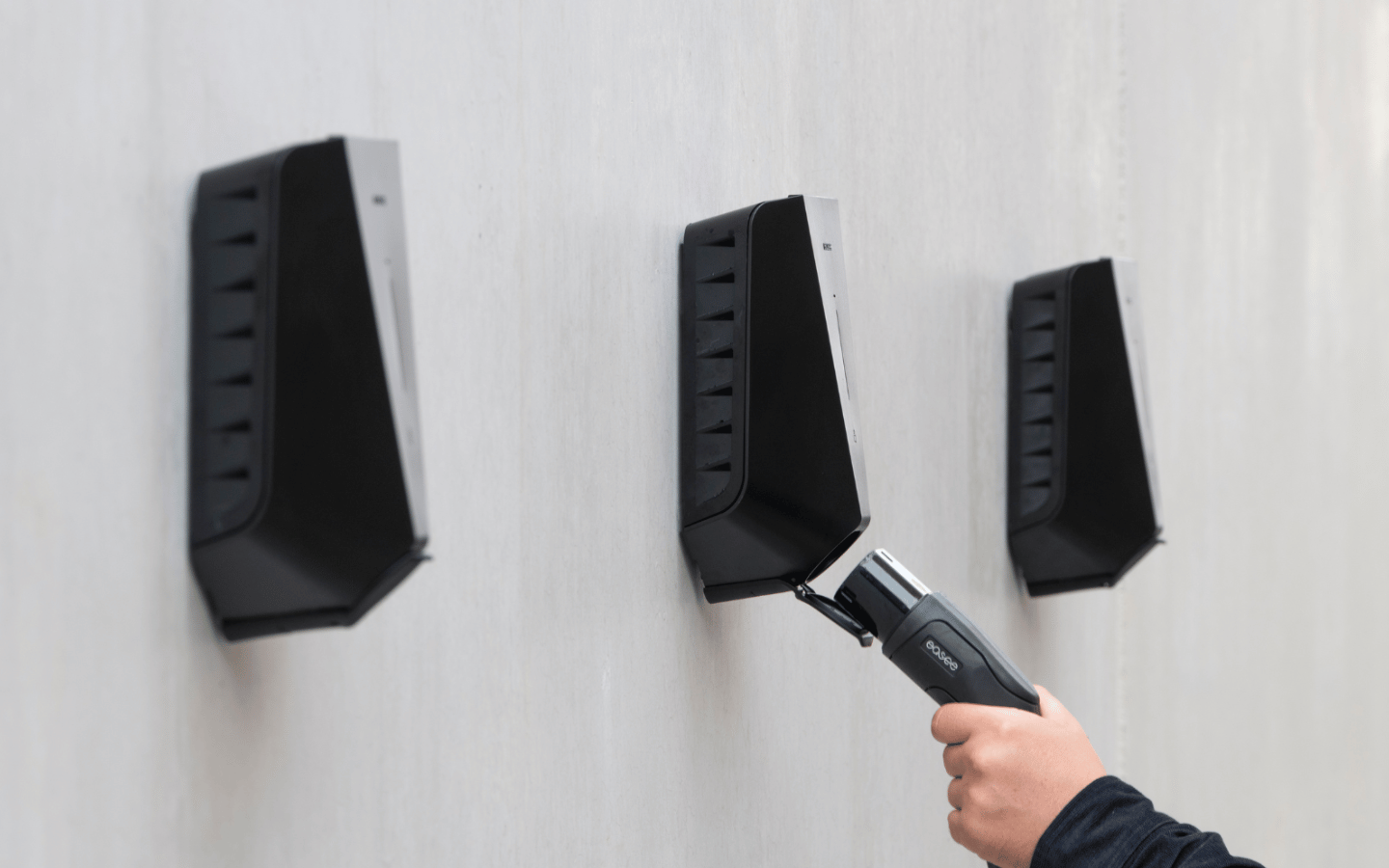

Can I have two electric vehicle chargers at home?
If you are a multi-EV household, you may be wondering: Can I have two electric vehicle chargers at home?
The short answer to this question is yes, you can easily have more than one EV charger at home. There is no specified limit.
In fact, some home EV chargers, including the Easee One, allow you to ‘daisy chain’ the chargers so they share the same circuit, making it easier to have two electric car chargers installed on your property.
However, the more important question is: do you need two EV chargers? This answer is not so simple.
Today, as one of the UK’s leading EV charger installation companies, with over 25,000 installations under our belt and a 4.9 Trustpilot score, we cover everything you need to know about having two home EV chargers.
Quick Summary:
- In short, you can easily have two EV chargers installed at home or elsewhere, such as at your workplace, if you want two. There is no limit to the amount you can have installed, but note that you will likely be charging less than the stated kW charging rate due to the nature of electricity supplies.
- You can either have two separate EV chargers or one dual charger, which has two sockets on one unit.
- Overall, it’s not essential to have two or more electric car chargers. In fact, it’s highly unlikely that you’ll ever need two charging points at home unless both EV owners are constantly travelling long distances and need to simultaneously charge frequently. We rarely see customers investing in two EV chargers.
- Before you decide whether or not you would like a second EV charger, you should consider the following factors: The cost of installing two EV chargers, how much space you have at your property, how fast you want your electric cars to charge, how often you drive your EV, and whether your electric vehicle is Type 1 or Type 2.
What should you consider before investing in two EV chargers?
1. How much will it cost to have two EV chargers?
Purchasing and installing a home EV charger is a big investment on its own, so if you throw a second EV charger into the mix, it’s going to be expensive.
While there are undoubtedly advantages to having two EV chargers, the price might outweigh the benefits for some.
On average, the cost of a home electric vehicle charger and its installation combined is roughly £1,000. So, double that, and you are looking at over £2,000 for two electric vehicle chargers and their installation. Of course, this is dependent on which model you choose.
There are ways to help cushion the cost. Firstly, if you are eligible for the new EV Chargepoint Grant, you could subsidise one of the electric vehicle chargers by £350. However, this is only if you live in a flat or rented accommodation. It’s important to note that you can only claim it against one electric vehicle charger as well.
Another way to lessen the brunt of the high cost is to spread payments over time. Finance is available, so feel free to contact us if you would like to learn more about your options.
Due to the sophisticated and intelligent nature of smart EV chargers, the price of electric vehicle chargers is likely to remain the same for the foreseeable future. If you add in the Smart Electric Vehicle Charging Regulations that prohibit the sale of non-smart or ‘dumb’ chargers, it’s unlikely you will find a drastically cheaper alternative (that is also safe and legal to use), even with the different models available.
2. How much space do you have on your property?
How much space do you have at home? Do you have multiple garages? Do you have off-street parking? All these play into your decision.
If you have limited space on your property, the answer is simple: stick to one electric vehicle charger.
However, if you are a multi-EV household, it’s more than likely you will have plenty of room for two or more cars.
Overall, it’s best to assess the space and decide where you would like your additional charger to go. You never know; it might impact your house’s aesthetics.
3. How fast do you want your electric vehicle to charge?
Charging both your EVs simultaneously might seem like a good idea on the surface, but if you get into the nitty-gritty, you will find that your EVs will charge at a decreased speed.
If you have a single-phase electricity supply (the most common power supply in the UK) and have two 7kW home EV chargers on one circuit, you will actually be charging at approximately 3kW to 3.6kW each rather than both at the typical 7kW.
The equal rate splitting only occurs if your EV chargers have load balancing, too, so if your chosen chargers do not have this feature, the electricity rate could be split unevenly, meaning one EV will charge faster than the other.
Overall, charging at a lower rate will drastically reduce your charging speed, making it take longer than usual to fully charge.
In truth, you might be better off with one EV charger and rotating when each electric car has finished charging. It will likely save time (and it will undoubtedly save you money).
4. How often do you drive your electric car?
The biggest perk of having multiple home electric vehicle chargers at home is, without a doubt, convenience.
Having two chargers available at all times opens a world of electric vehicle charging possibilities. No longer do you have to wait at public charging points or use slow three-pin plug charging. Simply plug in and charge whenever you need. Think cold, early morning hours, dark late nights, or even after school drop off. Charging, whenever you want. You have the flexibility to charge on your own schedule.
What’s more, you won’t have to wait for your turn, as two chargers will always be available at home.
But how long is your daily commute? How often do you go on long journeys? What is the typical range of your EV? These are the questions you need to be asking yourself. For example, if every EV driver in your household has a long daily commute and a smaller battery, whereby you need to charge frequently, it would be in your best interest to have more than one charger, even with the slower charging rate.
On the other hand, if the EV owners work from home often or have short commutes that don’t require their EVs to be charged every day, it might be best to share one charging point.
If you are commuting to work, another question to ask yourself is: Does your workplace have EV charging infrastructure? By topping up at your workplace, you are saving money (by charging for free and because you don’t have to purchase another EV charger) and making additional use of your working hours.
Does your workplace not have electric vehicle charging yet? There are a variety of benefits of workplace charging, not only for employees but for employers too.
5. What inlet type does your electric vehicle have?
The UK’s most common EV inlet type is Type 2. However, there are a few EVs that still hold the Type 1:
| Citroen C-Zero (2016-2020) | Nissan Leaf Mk1 (2012 – 2017) |
| Ford Focus Electric | Peugeot iOn EV (2011-2018) |
| Ford C-MAX Energi (2013-2017) | Renault Fluence (Pre-2014) |
| Kia Soul EV (2017) | Toyota Prius Plug-In Hybrid (Pre-2017) |
| Mitsubishi I-MiEV | Vauxhall Ampera |
| Mitsubishi Outlander PHEV | Renault Kangoo Phase 1 |
| Nissan e-NV200 Combi |
If a member of your household has a Type 1 electric car and a home charger with a Type 1 socket, and you have a Type 2 EV, you will not be able to use their charger. If this is the case, you will have to invest in two home EV chargers, as you, unfortunately, won’t be able to share one (unless you purchase a Type 1 to Type 2 cable).
6. What are the other charging options if I stick with one home EV charger?
If you stick with the one home EV charging point, you can easily share it between your two electric cars.
In the event that you are in desperate need of a charge and your charger is occupied, there are other ways to top up your EV. Take advantage of the public charging infrastructure and use rapid/ultra-rapid charging stations when out and about.
To make life easier, you could even search Zap-Map to find your closest public charger. Currently, there are over 87,796 EV chargers across the UK, so you are sure to find one nearby – some of which may be free.
In case you still want the comfort of your own home when charging, you could always resort to three-pin plug charging. The downside of this is that it’s one of the slowest ways of charging, among other negatives.
What are the options if I want two or more EV chargers at home?
1. Invest in a home EV charger with the load-balancing feature
To equally charge two electric vehicles simultaneously, you will need to invest in a home EV charger with the load-balancing feature. The Easee One is a great option as it allows you to ‘daisy chain’ up to three electric vehicle chargers on your property per fuse. This nifty unit load balances to ensure the energy is split equally between your chargers, meaning you can charge safely and securely at the same time.
However, as mentioned before, if you have a single-phase electricity supply, when you charge both EVs at the same time, they will each charge at around 3kW.
2. Invest in a dual EV charger
Twin chargers, or more commonly known as dual chargers, are one charging unit with two connectors.
Dual chargers are not as common as your standard single EV chargers by any means. Though some are available on the UK market. Take the Pod Twin EV charger, for example. Or the below image of the evec dual EV charger.
The upside to a dual EV charger is that, typically, they are slightly cheaper than investing in two separate home EV chargers.
That being said, you will still have the issue of decreased charging speed if you were to choose a dual charger.
Currently, we do not stock any dual chargers here at We Power Your Car as part of our EV charger range, but please feel free to contact us at 03333 44 96 99 if you are interested in one. We may still be able to help or at least point you in the right direction.
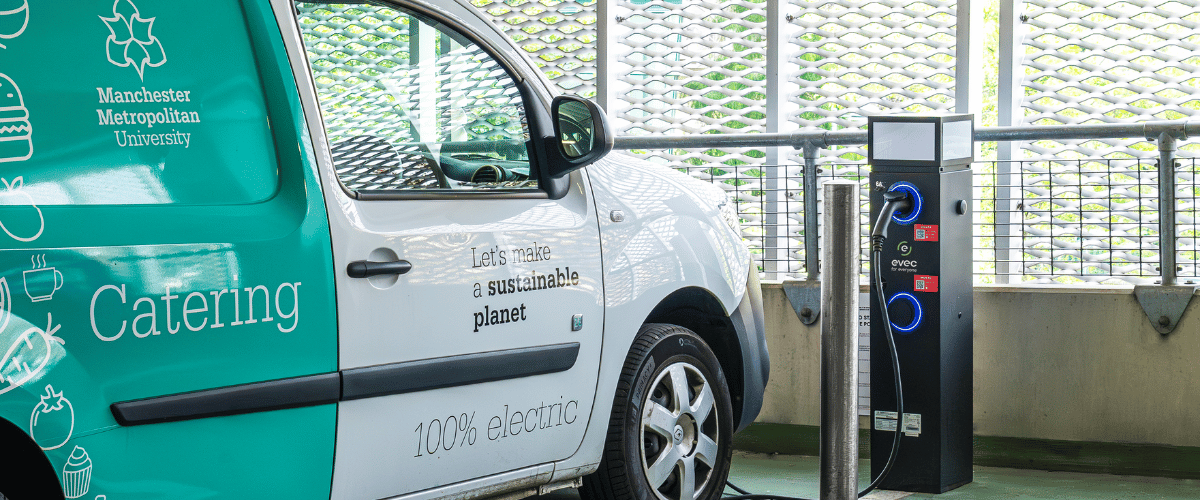
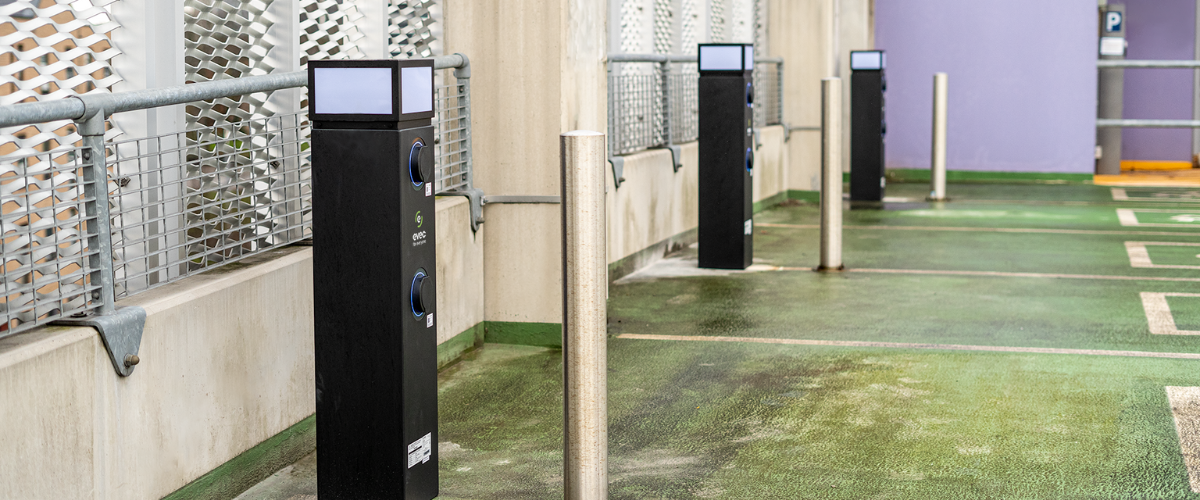
3. What if I want two EV chargers that charge both EVs at 7kW?
The only way to do this is by upgrading your property’s electricity supply to a three-phase electricity supply and investing in two 7kW home chargers with the load balancing feature.
First and foremost, it’s important to note that upgrading to a three-phase electricity supply is expensive and time-consuming, not to mention the additional cost of two EV chargers on top of that.
Overall, it may not be worth the time, effort and money to go down this route. However, it is entirely your decision and will depend on your charging needs.
As mentioned before, most households in the UK have a single-phase electricity supply, and in order to upgrade to a three-phase supply, you will need to contact your DNO.
If you prefer to watch than read, check out our video on this topic.
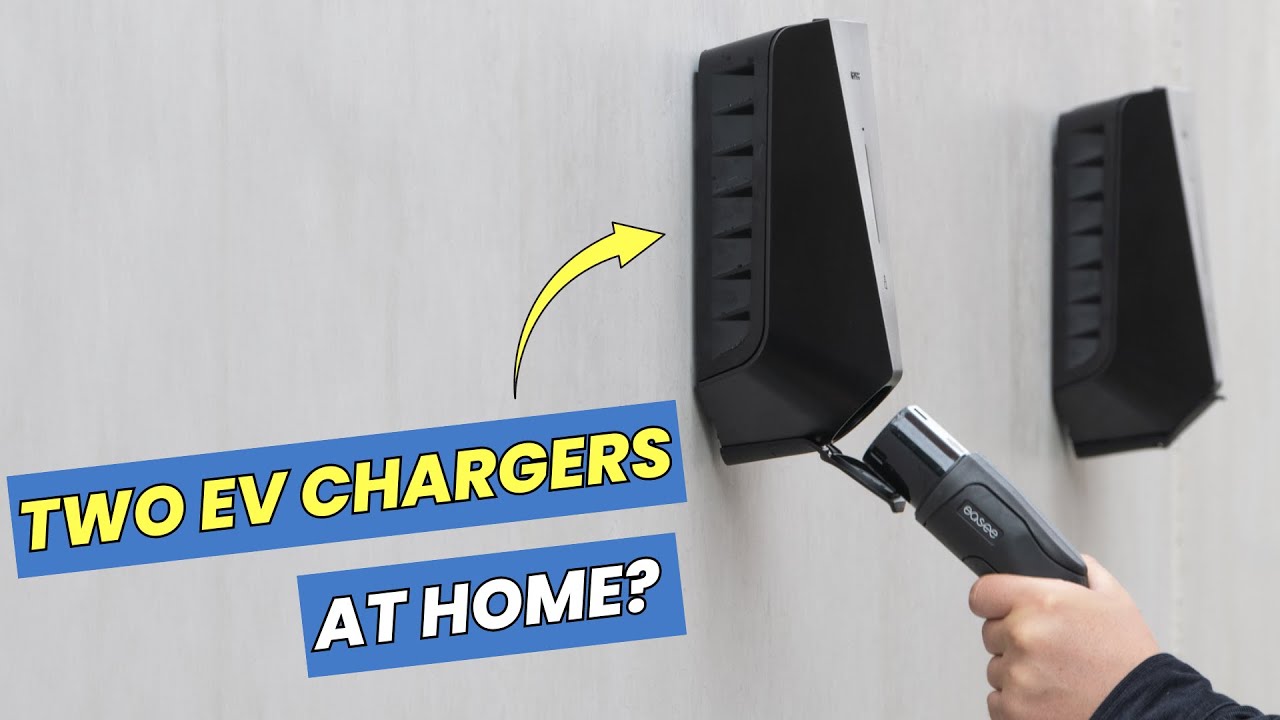
Are you looking to get a home EV charger (or two) installed on your property?
If you are looking to get an EV charger installed at your home, click below to get your free quote, or contact us for more information or any queries you may have. As a nationwide EV charger installation, we can install electric car chargers wherever you are, all with first-class customer service.
Don’t believe us? Browse our accreditations:
- Safe Isolation Provider
- TrustMark approved
- ISO accredited (ISO 9001, ISO 14001 and ISO 45001)
- OZEV-approved
- NIC EIC approved
- Safe Contractor Approved
- HERS accredited
Alternatively, explore our in-depth guide to home EV charger installation.
For more information and our latest updates, follow us on Facebook, Instagram, Twitter, LinkedIn and YouTube.
